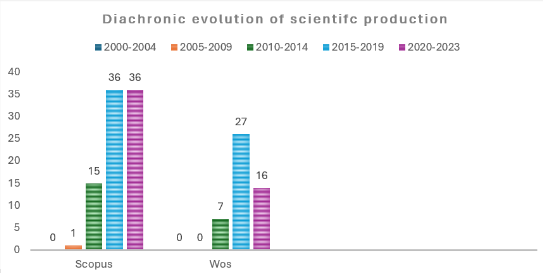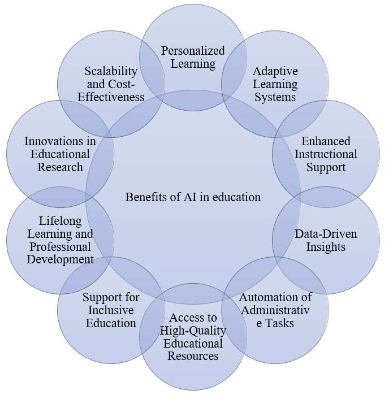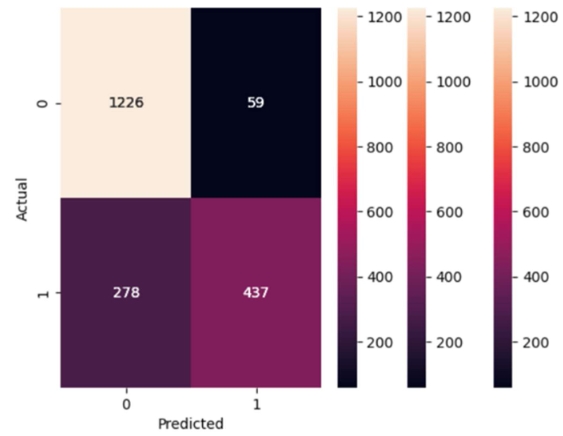




 Open Access
Open Access
Article
Article ID: 541
by Diana Ghanem, Sarah Tarhini, Marwa Manana, Sanaa Awada, Roula Bou Assi, Assem El-Kak, Georges Hatem
Forum for Education Studies, Vol.2, No.2, 2024;
Purpose: Academic pressures, the fear of failure, social expectations, and high expectations from parents or teachers can all contribute to performance-related stress or anxiety in children. This study aims to assess the triggers encountered by primary schoolchildren and examine the interrelatedness between them and the characteristics of the students. Methods: A pilot cross-sectional study targeted primary school children over two months. Two pharmacists and a psychologist collected data using a standardized survey. Students were asked to assess their social (10 statements), behavioral (10 statements), environmental (10 statements), and academic (16 statements) triggers. Results: Environmental triggers had the highest score (4.92 (1.92)), followed by behavioral triggers (4.21 (1.70)). Social triggers were the least reported (3.52 (1.59)). After adjusting for covariates, age, sex, and grade did not affect the academic triggers of the students (p > 0.05), while having divorced or separated parents significantly increased these triggers (B = 0.22; p = 0.025). The social triggers and stressors significantly decreased (B = −0.28; p = 0.003) per grade increase. In contrast, having divorced parents significantly increased these scores (B = 0.21; p = 0.025). Environmental triggers significantly decreased per increase of one year in age (B = −0.23; p = 0.013), with the same pattern observed for the overall trigger scores (B = −0.28; p = 0.003). Conclusion: Promoting open communication, creating an inclusive environment, establishing achievable academic goals, and regular follow-up with students can be effective strategies to reduce school triggers among those at high risk.
 Open Access
Open Access
Article
Article ID: 555
by Tanju Deveci, İdris Bedirhanoğlu
Forum for Education Studies, Vol.2, No.2, 2024;
Engineering programs have to develop students’ teamwork skills. However, the onus on content specialists to teach teamwork skills may be challenging partly because of students’ negative attitudes towards and experiences with teamwork. This study investigated 295 engineering students’ thoughts on teamwork and the strategies they used to solve problems with underperforming team members. Data were collected using a survey and a discourse completion task. The results revealed that among the key reasons why the students liked such activities was the exchange of information and experience, increased quantity and quality of work, and interpersonal communication. However, they indicated lack of harmony, social loafing, lack of attention paid to tasks, and individual approaches to learning as reasons for skepticism about teamwork. As to problem-solving strategies, emphatic inquiry and judgmental questioning were most common. Based on these results, we suggest that engineering faculty collaborate with communication instructors in planning and executing soft-skills training for students. Engineering faculty should also be provided with technical support for the incorporation of teamwork activities in virtual environments.
 Open Access
Open Access
Article
Article ID: 569
by Afam Uzorka, David Makumbi, Kagezi Kalabuki
Forum for Education Studies, Vol.2, No.2, 2024;
Education institutions quickly made the switch to remote teaching and learning because of the COVID-19 pandemic’s extraordinary problems. This study intends to investigate how the pandemic has affected lecturers’ soft skills, which are vital non-technical and interpersonal skills such as efficient communication, teamwork, adaptation, empathy, problem-solving, and leadership. Data were gathered from lecturers who had firsthand experience with the change to remote teaching through a qualitative study methodology that included interviews and focus group discussions. The research shows that lecturers used new tools, modified their teaching methods, and navigated the virtual environment with amazing flexibility and adaptation. Communication skills improved as lecturers used digital tools to interact with students and offer support. With lecturers attending to academic demands and emotional well-being, empathy and student assistance emerged as crucial. Through creative virtual methods, cooperation and teamwork were promoted. To overcome obstacles, problem-solving skills were used. The study advances knowledge about how the pandemic affected lecturers’ soft skills. The COVID-19 pandemic has significantly changed how instructors use their soft skills. Rapid technological advancement, improved communication abilities, adaptability and flexibility, student support and empathy, and teamwork have all been identified as major areas of change. To successfully adapt to changing educational environments and guarantee the delivery of high-quality education, lecturers will need to further develop these soft skills in the future. By accepting these adjustments, lecturers may not only deal with the difficulties caused by the pandemic but also create a future-focused, welcoming learning atmosphere for their students. Future research should focus on long-term effects, quantitative validation of findings, and evaluation of interventions to improve lecturers’ soft skills in distance learning. In light of changing educational environments, such research can promote lecturers’ professional growth and inform pedagogical methods.
 Open Access
Open Access
Article
Article ID: 1228
by Krista Carpino, James Hutson
Forum for Education Studies, Vol.2, No.2, 2024;
This study explores the use of AI art generators to enhance formal analysis skills in AP Art History students, with a focus on Islamic Art and Architecture. Students, often entering the course with high academic achievements, find the unique challenge of articulating detailed visual descriptions of artwork. The study’s approach involves using AI image-generation websites, like wepik.com, where students create AI images resembling Islamic artworks studied in class. This method aims to refine their descriptive skills, focusing on visual evidence rather than relying on identifying details. The choice of Islamic art, markedly different from other historical periods covered in the curriculum, is intended to boost retention and learning engagement. The results show that students were more successful in describing architectural artworks compared to two-dimensional narrative pieces, with limited site access and the need for iterative description refinement being key challenges. Successful attempts were marked by precise vocabulary usage and detailed descriptions, resulting in AI images closely matching the original artworks. In contrast, less successful attempts revealed deficiencies in comprehensive and detailed descriptions, particularly in narrative artworks. These outcomes highlight the potential and limitations of AI tools in art history education, suggesting that their effectiveness depends largely on the depth and precision of student inputs. The study not only demonstrates the innovative application of AI in education but also underscores the importance of detailed visual analysis, pointing towards future enhancements in AI-assisted educational methodologies.
 Open Access
Open Access
Article
Article ID: 566
by Deepika Chauhan
Forum for Education Studies, Vol.2, No.2, 2024;
The purpose of this study is to determine the Techno-Pedagogical Competency and attitude towards teaching of teachers from selected colleges in Gurgaon District. A normative survey method was adopted in this stage. A sample of 190 teachers were selected from various colleges. The study found that the level of Techno-Pedagogical Competency and the teachers’ possessed a favourable attitude towards teaching. Further, it was found that there exists a significant difference in Techno-Pedagogical Competency and attitude towards teaching mean score among teachers with respect to gender, locality, teaching experience, and type of institutions. Further, it can be revealed that there was a significant positive correlation between Techno-Pedagogical Competency and attitude towards teaching. Overall, this study provides valuable insights into the current state of Techno-Pedagogical Competency and attitude towards teaching among teachers in Gurgaon District. The findings suggest that the teachers in the region have a good grasp of using technology for pedagogical purposes and hold a positive outlook towards their teaching profession. The results also highlight the importance of considering demographic factors when analyzing teachers’ competency and attitude.
 Open Access
Open Access
Article
Article ID: 1137
by Poh-Chuin Teo
Forum for Education Studies, Vol.2, No.2, 2024;
Delving into the crucial role of accreditation in elevating the global presence of business schools within higher education, the focus of the research shifts to highlighting the foundational impact of higher education institutions on intellectual, social, and economic development, exploring the integration of global perspectives in universities and colleges. The focus then shifts to business schools, detailing their diverse programs and mission to foster leadership and business acumen. Emphasizing intentional internationalization strategies like enhanced curricula and global partnerships, the paper underscores the transformative nature of this process aligned with the interconnected realities of the business world. Accreditation plays an influential role as a linchpin for collaboration, quality assurance, and global credibility, outlining key dimensions such as global recognition, benchmarking, collaboration, and diverse talent attraction. It concludes by asserting accreditation’s vital role as a compass guiding business school toward excellence and relevance in an interconnected world.
 Open Access
Open Access
Article
Article ID: 1242
by Jason Lively, James Hutson
Forum for Education Studies, Vol.2, No.2, 2024;
Amidst the current wave studies of artificial intelligence (AI) in education, this longitudinal case study, spanning Spring 2023 to Spring 2024, delves into the integration of AI in the UI/UX web design classroom. By introducing both text-based and image-based AI tools to students with varying levels of skill in introductory web design and user experience (UX) courses, the study observed a significant enhancement in student creative capabilities and project outcomes. The utilization of text-based generators markedly improved writing efficiency and coding, while image-based tools facilitated better ideation and color selection. These findings underscore the potential to augment traditional educational methods, providing students with novel avenues for creativity and innovation. At the same time, the goal of this study was also to ascertain the factors that led to the adoption of AI tools in the educational workflow, specifically focusing on student major and background, thereby illuminating how AI can be tailored to meet diverse educational needs and foster a more adaptive and innovative learning environment. The findings reveal that students were more receptive to integrating AI tasks into their workflows when these tasks did not directly relate to their major field of study. For example, Computer Science students exhibited less resistance to using AI for selecting color palettes, a task outside their primary focus, compared to utilizing AI for coding. Additionally, the study observed a significant growth in both awareness and usage of AI tools among students throughout the duration of the research. This trend suggests an increasing incorporation of AI technologies into their standard toolkit, highlighting a broader acceptance and integration of AI in educational practices.
 Open Access
Open Access
Article
Article ID: 1229
by Emily Barnes, James Hutson
Forum for Education Studies, Vol.2, No.2, 2024;
Artificial intelligence (AI) and machine learning (ML) are transforming higher education by enhancing personalized learning and academic support, yet they pose significant ethical challenges, particularly in terms of inherent biases. This review critically examines the integration of AI in higher education, underscoring the dual aspects of its potential to innovate educational paradigms and the essential need to address ethical implications to avoid perpetuating existing inequalities. The researchers employed a methodological approach that analyzed case studies and literature as primary data collection methods, focusing on strategies to mitigate biases through technical solutions, diverse datasets, and strict adherence to ethical guidelines. Their findings indicate that establishing an ethical AI environment in higher education is imperative and involves comprehensive efforts across policy regulation, governance, and education. The study emphasizes the significance of interdisciplinary collaboration in addressing the complexities of AI bias, highlighting how policy, regulation, governance, and education play pivotal roles in creating an ethical AI framework. Ultimately, the paper advocates for continuous vigilance and proactive strategies to ensure that AI contributes positively to educational settings, stressing the need for robust frameworks that integrate ethical considerations throughout the lifecycle of AI systems to ensure their responsible and equitable use.
 Open Access
Open Access
Article
Article ID: 1373
by Enric Ortega-Torres, Esther Gamero Sandemetrio
Forum for Education Studies, Vol.2, No.2, 2024;
Skills in scientific processes are part of scientific literacy and constitute a very important component of science teaching. However, there are few studies that determine how key factors in scientific literacy change throughout the educational process. This research examines how familiarity and interest in science processes evolve throughout the education of future teachers. The study involved 200 students from different educational stages: 41 students from secondary education; 67 students from high school; 69 students from bachelor’s degree in education; and 23 students from the secondary education master’s program from different educational centers in the Valencian community. Data collection instruments included a validated closed-question questionnaire, as well as a discussion group with a representative group of students aimed at better understanding the quantitative data, thus combining quantitative and qualitative methods of data analysis. Overall, it is observed that familiarity and interest in science processes improve throughout the educational stages. Based on these results, the need for a change in science education from an early age is suggested to improve students’ understanding and contextualization of science in their daily lives.
 Open Access
Open Access
Review
Article ID: 543
by Alan Johnston, Lyn Johnston
Forum for Education Studies, Vol.2, No.2, 2024;
The production of job-ready graduates remains one of the key requests of the business community. The purpose of this paper is to re-examine the importance of assessment in developing employability skills and in making graduates more employable. One criticism often levied at higher education institutions is that students understand ideas in subject context but cannot transfer that knowledge into a holistic business context. As such, they have silo ‘mentality’; to be successful in the modern complex working and business environment, they need to understand and command multiplicity. As a conceptual paper, this article seeks to discuss the importance and relevance of assessment and its links to employability. The paper provides a case for the inclusion of synoptic assessment as a tool for developing and demonstrating employability skills. The article emphasises the importance of employability and surrounding issues. The paper provides originality through linking the concepts of education and assessment with the end goals of job readiness and employability. This paper argues for a new approach to assessment that is employability-driven.
 Open Access
Open Access
Review
Article ID: 1209
by Alan Johnston, Lyn Johnston
Forum for Education Studies, Vol.2, No.2, 2024;
The paper considers the concept of professionalism within the UK Further Education (FE) through an analysis of the literature. The paper identifies professionalism as a key feature of the changing landscape within UK FE since the Further and Higher Education Act (1992), which incorporated FE colleges, allowing them levels of autonomy and discretion not seen before. With it came new staffing contracts and changes to the expectations of a ‘professionalised’ staff team. This paper suggests that despite 30 years having passed since incorporation, FE Colleges and their management still struggle with the concept of professionalism and its reality, noting particularly the dysfunctional nature of the sector and its difficulty in having a defined identity.
 Open Access
Open Access
Review
Article ID: 1512
by Federico Valente
Forum for Education Studies, Vol.2, No.2, 2024;
The aim of this paper is to provide effective responses to three different articles that discuss the issues of grammar translation instruction, the differences between British and American accents, and, above all, what model to aspire to when learning English in order to investigate what the perceptions of Italian EFL learners at secondary state schools are with regard to these elements. The trigger for this analysis comes first from my EFL teaching experiences at Italian state high schools, where the syllabi employed tend to overlook these features and focus on conventional teaching practices. Secondly, the stimulus for this study comes from research articles in this field that I read before writing these responses in order to have a broader view of these themes. Each response describes in detail theoretical issues with regard to the articles selected for this analysis, and it also makes reference to the context identified for this investigation. This study was conducted in Italy, and the data gathering processes consist mainly of qualitative semi-structured interviews with eight participants (four EFL learners and teachers of English as a foreign language and English literature), interview transcripts, and content analysis techniques that I used to examine and interpret the data collected. Findings indicate that innovative EFL teaching and learning practices are needed in Italian state high schools, especially where the syllabi employed overlook these identified aspects of the language.